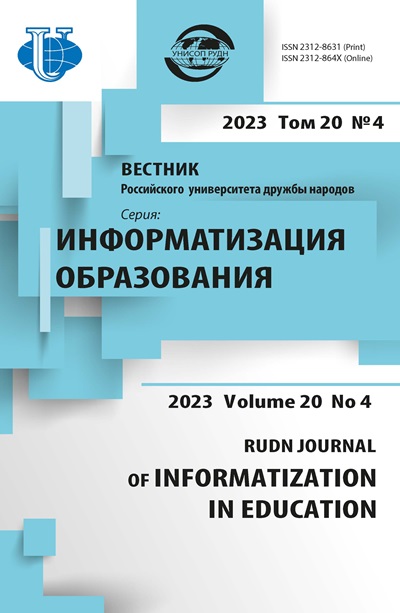Выпуск
Название
Авторы
|
Григорьев С.Г., Гриншкун В.В., Левченко И.В., Заславская О.Ю. |
|
Аниканова К.И. |
|
Заславская О.Ю. |
|
Левченко И.В. |
|
Баженова С.А. |
|
Левченко И.В. |
|
Заславская О.Ю., Брага А.Н. |
|
Левченко И.В. |
|
Заславская О.Ю., Галеева Н.Л. |
|
Хожаева Т.С. |
|
Заславская О.Ю. |
|
Цветкова А.В. |
|
Камянецкий С.Ю. |
|
Бубнов В.А. |
|
Жемчужников Д.Г. |
|
Глизбург В.И. |
|
Игнатенко Н.В. |
|
Нурбекова Ж.К., Аймичева Г.И. |
|
Карташова Л.И., Левченко И.В., Павлова А.Е. |
|
Корнилов В.С., Зарянкин В.А. |
|
Беликов В.В. |
|
Алдияров К.Т., Бидайбеков Е.Ы. |
|
Горюшкин Е.И. |
|
Пучкова Е.С. |
|
Юнов С.В., Фешина Е.В. |
|
Заславская О.Ю., Левченко М.С. |
|
Морозова С.В. |
|
Карташова Л.И., Левченко И.В., Павлова А.Е. |
|
Карташова Л.И., Левченко И.В., Павлова А.Е. |
|
Горюшкин Е.И. |
|
Ложакова Е.А. |
|
Сильченко А.П. |
|
Кравец О.Я., Заславская z.o. |
|
Заславская О.Ю. |
|
Корнилов В.С., Морозова С.В. |
|
Гриншкун А.В., Левченко И.В. |
|
Карпезина И.А. |
|
Корнилов В.С. |
|
Свиридов М.С. |
|
Прусакова О.А. |
|
Карташова Л.И. |
|
Карташова Л.И. |
|
Заславский А.А. |
|
Заславская Т.Ю., Левченко И.В. |
|
Любвин И.Н. |
|
Руденко А.Е. |
|
Карташова Л.И. |
|
Карташова Л.И., Левченко И.В., Павлова А.Е. |
|
Заславская О.Ю., Филатова Н.И. |
|
Алдияров К.Т., Бидайбеков Е.Ы. |
|
Бекбулатова И.У., Беркимбаев К.М., Мейрбекова Г.П., Ниязова Г.Ж. |
|
Лагашина Н.И. |
|
Лукина Л.А., Сидорова Н.В., Кузина Н.Г. |
|
Заславская О.Ю., Кравец О.Я. |
|
Шихалева Л.А. |
|
Жданов С.А., Сильченко А.П. |
|
Дергачева Л.М., Рыбаков Д.С. |
|
Алдияров К.Т. |
|
Алдияров К.Т. |
|
Димов Е.Д. |
|
Баженова С.А. |
|
Бороненко Т.А., Голышева О.А. |
|
Бобина Е.В., Филатова Н.И. |
|
Скопин И.Н. |
|
Ломаско П.С. |
|
Григорьева М.А. |
|
Бордуков Н.И. |
|
Свиридова Т.С. |
|
Садыкова А.Р., Левченко И.В., Карташова Л.И. |
|
Чайка Л.В. |
|
Усова Н.А. |
|
Левченко И.В., Карташова L.r. |
|
Симонова И.В., Бочаров М.И. |
|
Черномордова Н.С. |
|
Алдияров К.Т., Бидайбеков Е.Ы. |
|
Рыбаков Д.С., Мурзаева А.С. |
|
Бешенков С.А., Шутикова М.И., Рыжова Н.И. |
|
Игнатова О.Г. |
|
Карташова Л.И., Левченко И.В., Павлова А.Е. |
|
Громов А.И., Курышев Е.С. |
|
Кузнецов А.А., Григорьев С.Г., Гриншкун В.В., Заславская О.Ю., Левченко И.В. |
|
Прокопова Н.С. |
|
Алдияров К.Т., Бидайбеков Е.Ы. |
|
Абрамов А.В. |












